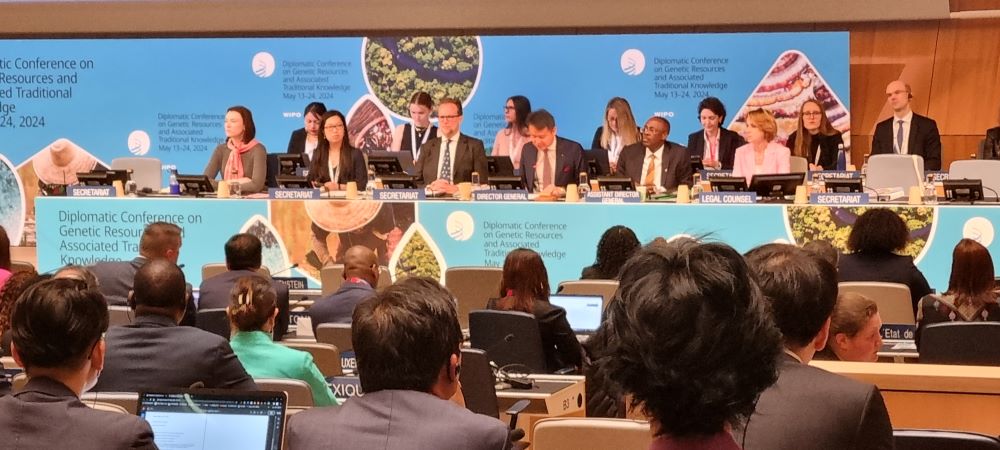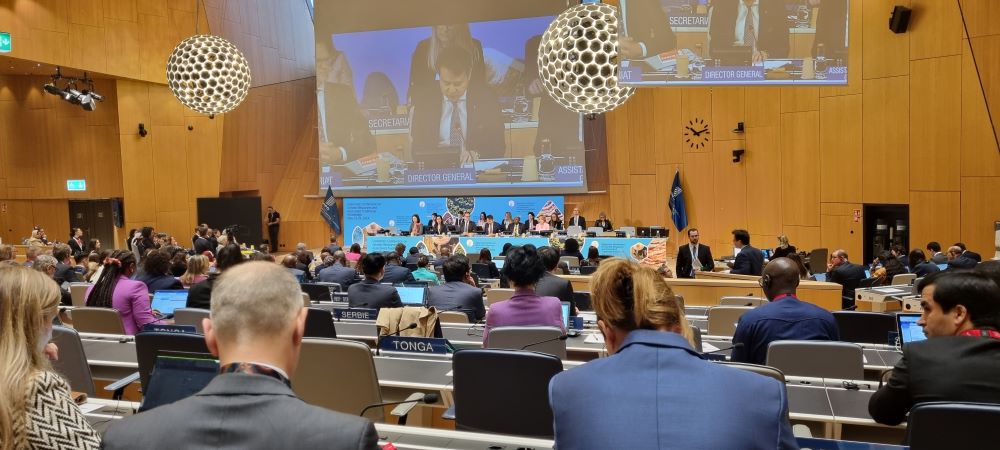Director Merdžo participates in the work of the Diplomatic Conference on Genetic Resources and Associated Traditional Knowledge

Geneva, May 13, 2024 – Director of the Institute for Intellectual Property of Bosnia and Herzegovina Josip Merdžo participates in the Diplomatic Conference on Genetic Resources and Associated Traditional Knowledge, taking place in Geneva from 13 to 24 May.
This diplomatic conference, hosted by the World Intellectual Property Organization (WIPO), is the final stage of negotiations before the adoption of an international legal instrument. The future instrument aims to "increase the efficiency, transparency and quality of the patent system" and "prevent granting patents for inventions that are not new or inventive regarding genetic resources and traditional knowledge associated with genetic resources."
Some 1,200 delegates – including government Ministers - observers and other stakeholders from across the globe joined the “Diplomatic Conference,” which will cap decades-long negotiations among WIPO member states on the subject.
In a speech welcoming the delegates to WIPO’s headquarters in Geneva, WIPO Director General Daren Tang underlined the historic nature of the negotiations and said: “Let me be candid – negotiations will not be easy. Negotiations dealing with significant and important topics rarely are. But I call on all of you to marry passion with pragmatism, and channel the same spirit of flexibility, accommodation and consensus that has brought us now to the cusp of a truly landmark agreement.”
Genetic resources are contained in, for example, medicinal plants, agricultural crops, and animal breeds. While genetic resources themselves cannot be directly protected as intellectual property, inventions developed using them can, most often through a patent.
Some genetic resources are also associated with traditional knowledge through their use and conservation by Indigenous Peoples as well as local communities, often over generations. This knowledge is sometimes used in scientific research and, as such, may contribute to the development of a protected invention.
At this Diplomatic Conference, we can show that there is no contradiction between a robust and predictable IP regime – one that incentivizes innovation, attracts investments and drives game-changing research – and one that responds to the needs of all countries and their communities everywhere, including those from Indigenous Peoples as well as from Local Communities. A more inclusive and diverse IP system is not just a more dynamic IP system, it is a stronger IP system,” said Director General Tang.
WIPO currently administers 26 treaties, including the foundational documents of the global intellectual property system dating back to the late 19th century. The most-recent similarly high-level negotiation at WIPO occurred nearly a decade ago.

